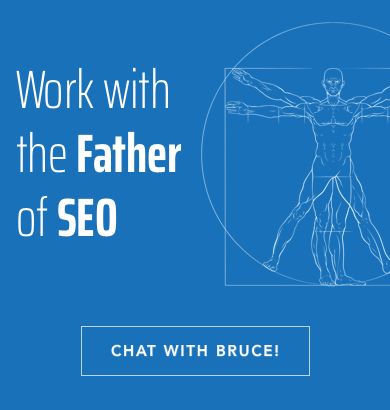SEO for Family Law Attorneys That Brings More Clients to Your Firm

Why SEO Matters
An increasing number of people are searching for family law services on the Internet, which means that law firms must do more to ensure that they are visible not only on the web but also in search engines. Firms must also do more to connect directly with potential clients.
SEO permits family law firms to appear near the top of search results and be discovered by clients in dire need of legal assistance. An even merely decent strategy will ensure that a firm’s web presence is visible to potential clients. A good strategy will ensure that traffic is not just visible but also targeted. SEO for family lawyers helps make your site an authoritative, credible, and trustworthy source for the kind of information people need when they are in the midst of a family law crisis.
What I Think
From a professional standpoint, SEO-focused family law firms have an obvious competitive edge in today’s marketplace. By investing resources into strategies specifically tailored for law firms, these firms are able to quickly and effectively reach potential clients seeking the kinds of legal services offered by these firms—far more so than through traditional marketing funnels.
Failure to prioritize SEO could prevent family law clients from finding and contacting your firm when they most require assistance. An effective plan does more than raise your law firm’s rank on search engine results pages; it builds authority and credibility as people view you as an established expert in family law practice—something crucial considering its long-term growth potential and sustainability.
Authority and influence growth requires more than basic SEO practices; it necessitates something deeper that requires careful thought-out planning. Why? Because prospective clients are searching for legal services over the internet; failing to properly or poorly implement comprehensive SEO strategies means missing out on leads that could come directly to your door.
Primary SEO Tasks
Primary SEO is about getting the essentials right—keyword research, content optimization, local SEO, and link acquisition. Together, they build the foundation for visibility, authority, and long-term lead growth.
Keyword Research
Family law firms must conduct keyword research in order to identify and target broad and niche keywords related to family law and local searches. Keyword research involving family law requires much more than just picking terms based on instinct; it requires knowing which terms are being searched, how often they have been searched, which types of clients conducted the searches and what kind of law they sought when performing their queries. Family law firms can gather all of this data and do two things with it:
First, they can utilize it to significantly boost search engine rankings and visibility. Second, they can utilize it to identify exciting areas for new business expansion and product differentiation.
Content Optimization
Family law firms must attract potential clients by creating exceptional service pages and content updates. This type of content is essential in drawing clients; when people find themselves in extraordinary family law situations which prompt them to seek legal representation from an attorney, they conduct Internet searches for answers or possible authorities who could provide them with hope for resolution; most do not look past the first page of search results so it is imperative that any family law firm be somewhere – anywhere – on page one of search results! Without appearing there first, chances are slim-to-none that a family law firm will ever be found!
Local SEO
Optimizing a website for local search results is what local SEO is all about. This makes it easy for local customers to find your business when they perform a search. To have even a fighting chance to show up in these searches, a law firm’s Google Business Profile must include local keywords, and it must include specific content about the locations it serves, especially in connection with the practice areas in which the firm works.
Link Acquisition
Acquiring high-quality backlinks for family law content through digital PR can significantly boost a law firm’s ranking and visibility. But this visibility goes beyond search engine results; it includes family law attorneys being seen far and wide with authority and trustworthiness by building relationships with respected websites that serve as beacons on the legal landscape.
Technical SEO
To strengthen their online presence, family law firms must ensure that the basic and advanced technical SEO elements are functioning optimally. These elements are essentially the work that needs to be done behind the scenes to provide a seamless experience for anyone who happens upon a website, whether intentionally or accidentally and include:
- Mobile accessibility
- Enhanced speed
- Improved security
- Image optimization
User Experience (UX) Optimization
If you are a family law firm, you must have clear navigation, excellent mobile responsiveness, and CTAs that clearly tell potential clients what to do next. User experience plays a huge role in creating these must-haves.
The sites should contain calls to action that positively draw in the potential client. I could make the case that “Book Our Free Consultation” is a far superior phrase to work with than simply saying “Contact Us.”
Trust is exuded by design; therefore, why not add to the design some client testimonials, an attorney bio, and some legal certifications that would undeniably enhance the credibility of your site?
Analytics and Performance Monitoring
When you measure the performance of your SEO strategy, you are gaining insight into what is working and what isn’t (i.e., you are gaining clarity on what is effective or ineffective). Your family law firm’s SEO strategy can be measured in a number of different ways. Tools like Google Analytics and Search Console can keep you apprised of organic traffic, bounce rates, and various keyword rankings over time, but more importantly, they and other tools like them allow for the tracking of conversion goals.
Competitor Gap Analysis
Analyzing the SEO of competing family law firms yields a trove of information that can lead to multiple strategies for upping your own site’s performance. For one, tools like Ahrefs and SEMrush let you see which keywords your competitors are using that you aren’t. Also, examining how top competitors structure their service pages and blogs can yield insights and inspirations for restructuring your own stuff. Not to mention the whole issue of backlink profiles. Looking at your competitors’ backlinks can help you identify potential outreach targets for digital PR or guest posts that can improve your own profile.
Conversion Rate Optimization (CRO)
CRO means increasing the percentage of your website visitors taking actions that are meaningful to you. It’s one thing to optimize a site for traffic but another one to optimize the site for conversions.
Secondary SEO Actions
Secondary SEO actions polish what’s already working. Adding schema markup, local citations, and helpful video content deepens your online footprint, strengthens local signals, and gives search engines more reasons to rank your firm higher.
Schema Markup Implementation
Add structured data (schema) so search results can show extras like review stars, hours, and FAQs. For family law, those rich snippets help you stand out and often lift click-through rates. Schema like LocalBusiness, LegalService, and Attorney should be implemented sitewide. FAQs about divorce, custody rights, or mediation add depth and earn “People Also Ask” box placements. Attorney bios enhanced with schema may trigger Knowledge Panels in branded searches. The correct implementation of schema also supports voice search queries, which are common for urgent legal concerns. Ultimately, structured data bridges the gap between technical SEO and user trust
Local Citations and Directories
Local SEO requires precise and accurate NAP (name, address, phone number) information across many different kinds of directories. This is especially true for directories that are specific to the legal profession, like Avvo, Justia, and FindLaw. Optimal and correct listings for your firm in these directories is the bare minimum to ensure any kind of real exposure.
But that listing accuracy has to extend into local search directories like Yelp, Google Maps, and the Yellow Pages. Even within these non-legal directories, the same basic rule applies: List your firm. List it even in places where you can’t see the direct benefit right away. Periodic audits of these places should be just another piece of your routine.
Moreover, you should minimize the appearance of incorrect or duplicate listings in any of these resources.
Video Content for Legal Awareness
Video content’s value in family law has been proven. The attorney-client relationship, which is so prevalent in family law, is one that makes video an almost preferable delivery mechanism. Incrementally, does that equal a positive influence on SEO? It can—and it helps with “page dwell time,” if you want to get technical. But there’s a downside. Law firms that are seriously exploring video also need to be serious about making their videos answer the questions that prospects are asking. If they don’t, and the law firm is working through high bounce rates as a result, those high bounce rates equal trouble.
Blogging with Long-Tail Keywords
Answer specific searches in blog posts—e.g., “How long does a divorce take in [State]?” Give each post a clean H1, a couple of H2s, links to your service pages, and a few reputable citations. Over time, that steady work pays off with stronger trust and more mentions. Answering state-specific legal changes or frequently asked questions positions your firm as a go-to resource. A content calendar ensures regular publishing aligned with seasonal or legislative changes. Over time, your blog becomes a magnet for organic traffic.
Reputation Management and Review Generation
The abundance of good reviews can positively affect SEO rankings and conversion rates for family law websites. That’s why it’s important for law firms to solicit Google reviews from happy clients, and also to ask (if appropriate) for reviews on some legal directory sites.
On-Page SEO Enhancements
Every page should feel intentional. Give it a clear title, a short meta description that makes people want to click, and links that help users move naturally through your site. Use simple alt text so images make sense to everyone, including search engines. Headings should sound like the questions people actually type in. Once in a while, check for pages that repeat or feel too thin—combine or clean them up so everything on your site earns its place.
Landing Pages for Service Variations
Creating unique landing pages for variations of services—such as uncontested vs. contested divorce—improves keyword targeting. These pages help you show up for very specific searches and meet people with precise needs. Personalize the copy—especially with city or county details—and conversion rates climb. Add proof: short testimonials, a simple timeline of what happens when, and any guarantees you offer. Keep the layout consistent: quick value statement, a few FAQs, and a clear next step. Done right, these landing pages become the doorway for your most qualified leads.
Email Drip Campaigns for Lead Nurturing
Not everyone who lands on a family law page is ready to hire today. Offer something useful—like a free “Divorce Prep Checklist”—in exchange for an email. Then send a short sequence with helpful articles, success stories, and practical tips. Split the list by interest (custody vs. divorce, etc.) so people get what matters to them. Use clear, personal subject lines and send at sensible times. Watch opens and clicks, learn, and adjust. When someone is ready for help, your firm will be the one they remember.
Live Chat and Lead Capture Forms
Add live chat for quick questions, trim forms to the basics, and let visitors book on a calendar. Catch hesitant users with an exit-intent offer. Ensure forms work on phones and are secure. That mix turns traffic into appointments.
A Helpful Tip
Long-form emotional content is a powerful family law SEO tool. Writing this kind of content well means writing not just for the search engine, but more importantly, for the people doing the searching. The readers for whom we write are not just looking for answers to literal questions but also for signs that we understand their world and the most pressing problems they face. These are the kinds of pages that, at the most literal level, succeed in answering all-important queries, such as “What is the emotional toll of divorce on children, and what will the real effect be on them in the long run?” Structuring the page to make it truly resonate with the reader is where the real art of this kind of content lies.
Common Topics for Family Law Attorneys
Divorce, custody, and support issues dominate family law searches. SEO content built around these core topics helps your firm reach people who are ready to act and builds authority with search engines at the same time.
Get Divorce Leads
A lot of people who need divorce-attorney services are searching for them with urgent, emotionally charged terms. The first thing that many individuals looking for a divorce lawyer do is head to Google and enter a few phrases like “divorce lawyer near me” or “file for divorce fast.” A good first step for any attorney trying to serve this audience and bring them into the firm’s sales funnel is to optimize relevant landing pages.
Get Child Custody Leads
Custody disputes occur between parents when their relationship has disintegrated, and they are forced to deal with the often-contentious arrangements for their children. The disputes often revolve around two issues which are frequently searched for on the web: 1. Who should have custody? 2. Where should the child live? Tailor your content to resolve this need.
Get Spousal Support Leads
Alimony and spousal support cases demand clarity, and SEO allows law firms to capture traffic from searches like “am I eligible for alimony” or “how much spousal support will I pay?” Building content around these queries with calculators, guides, and state-specific thresholds increases relevance. Structured data markup improves visibility for FAQ-style searches, especially around eligibility and modification. Pages should compare permanent vs. rehabilitative support and offer examples of successful settlements. Internal links to related topics—like divorce or income verification—enhance both UX and SEO. Schema and testimonials from past clients can improve engagement and trust. SEO ensures your firm is positioned as the go-to authority for those in financial transitions post-divorce.
Get Adoption Leads
Robust legal processes are associated with adoption, and SEO can assist in matching hopeful would-be parents with the appropriate attorneys. Many potential adoptive parents type search words and phrases into their preferred search engines that will hopefully yield the desired, necessary adoption-related legal counsel. “How to adopt a child in [State]” and “adoption counselors for stepparents” are just two of the many search phrases potential adoptive parents may use that, in some states, necessitate involving attorneys.
Attorneys also play a role in making those heart-forward messages visible. And that’s where search engine optimization comes in. When something as emotionally potent as the prospect of family growth is involved, the kind of connection made in that moment is truly precious. And the visibility of messages like that can only add a measure of trust to the prospect of undertaking something so big as adoption.
Get Guardianship Leads
Crisis or planning provokes many searches for guardianship. The first place people look is often the Internet, searching for terms such as “how to get legal guardianship of a child” or “appointing a guardian for an elderly parent.” Family law firms must be highly visible during these times, and using SEO practices is how they achieve that high visibility.
The pages that result when someone clicks on a search engine link must be clear; they must really explain, in some emotional sense, why a person would be making such a search and, in some calm, rational manner, why they ought to pick your firm.
Getting local SEO right will also help, as many searches will be for nearby service providers. Videos or explainers about the process of obtaining a guardianship will also help; that’s something a searcher might want to watch in the kind of state the average person is in when they visit a courtroom. The final big thing is internally linking to all these relevant pages. Not linking to relevant pages in a site structure results in very unclear pages.
Get Visitation Rights Leads
When parents are denied or limited visitation, they often take to the internet to search for help in a frantic manner, using heartfelt phrases like “how to get visitation rights” and “my child is denied access to me” that most family law attorneys can understand. Dissolution of marriage and custody fights are among the most emotionally charged incidents a person can go through.
Get Domestic Violence Case Leads
In domestic violence cases, SEO for family law attorneys ensures your firm is present when people are in urgent need of protection and help. Victims often search for “emergency protection order lawyer” or “restraining order help near me” in moments of distress. SEO pages should prioritize safety and clarity, including fast exit features and clear CTAs for immediate contact. Content should explain protective order types, legal timelines, and steps for seeking custody or relocation. Local SEO helps firms appear in searches tied to shelters, hospitals, or police department resources. Building backlinks from advocacy organizations enhances trust and domain authority. Through SEO, attorneys can offer safety and a legal lifeline when it matters most.
Get Paternity Leads
Paternity cases often arise around support, custody, or inheritance, and SEO positions attorneys to provide answers and guidance. Keywords like “prove paternity legally” or “father’s rights lawyer” drive high-intent traffic that needs clarity and legal expertise. Separate content for voluntary, contested, and court-ordered paternity actions supports deeper keyword coverage. Blogging about DNA testing, legal benefits of paternity, and case studies provides value and relevance. Pages should offer trust-building elements like attorney bios and family-centered imagery. Schema markup enhances these pages in SERPs and improves search visibility. SEO ensures your firm is seen as a credible source during a deeply personal legal journey.
Get Prenuptial Agreement Leads
SEO helps connect proactive couples searching for “prenuptial agreement lawyer near me” or “do I need a prenup before marriage?” to qualified family law attorneys. Landing pages should address common misconceptions, financial benefits, and legal enforceability of prenups. SEO allows firms to educate users early in the decision-making phase, creating trust and authority. Blogs can target niche queries like “prenup for second marriages” or “business owners and prenups.” Internal links to asset protection, estate planning, and postnuptial content improve crawlability and time on site. Adding schema for document services and attorney profiles enhances display and leads to higher CTRs. SEO turns a potentially awkward subject into a professional, confidence-building service.
Conclusion
When clear, search-focused content meets local targeting, the result is steady leads from people who actually need family-law help. Whether the issue is custody or a protective order, your firm has to show up at the moment of need.
If the goal is to build authority, increase visibility, and bring in qualified matters, Bruce Clay, Inc. is a strong partner. With decades in legal SEO, the team knows how to structure site architecture, content, and authority around each core service. Contact us today to build your presence where clients are already searching—and ready to take action.
FAQ: How can family law firms ensure that SEO helps them attract more clients?
The competitive business of legal services makes it essential for family law firms to have an online presence that is anything but nondescript. The vast majority of clients who seek to find an attorney begin their search with a Google query. Without search engine optimization (SEO), your chances of showing up in the results are almost laughably low. Even if your firm’s website somehow manages to land on the first page, you are much more likely to get a click if you are among the very first listings.
An effective family law SEO plan demands that firms create optimal content for clients.
It means putting pen to paper (or, more appropriately, having someone ghostwrite for you) when it comes to the weighty matters of family law: divorce, custody, and marriages that didn’t navigate the prenuptial waters.
When your firm covers a topic in an authoritative manner, it employs the proper keywords— well-researched, strategically-placed words that send a signal to search engines that says: Yes, this is a source you can trust, and these are the relevant legal topics being covered.
A local SEO strategy that works is indispensable for law firms that wish to engage with prospective clients. The vast majority of people who are in the market for a lawyer want one whose office is close by.
This makes it crucial for firms to shape their site so that it becomes effortless for Google to ascertain their location and the audience they serve. Besides uncomplicated site structure, there are many different methods to achieve this.
Family law firms must have a mobile-friendly site in today’s world. More and more, the actual front door of a law firm is the website, and a fast, mobile-friendly site is the only way to keep that door open. After mobile, it’s practically an understatement to say that your site should work intuitively. And practically everyone who visits a site should know what to do with it the second they land on it.
Moreover, law firms should ensure that users can easily find their expertise on the site. The technical setup of the site exists to tell search engines what the site is about and which content is most essential. They look for well-structured XML sitemaps pointing to the right URLs, meta tags that are optimized for relevant keywords, and SSL certificates that reassure users that the site is secure.
Having other websites link to a family law firm’s website—especially authoritative ones—signals value to search engines. And because search engines want to deliver the best results, it makes sense that they view links as an important signal of which pages to show. Backlinks are an incredibly important part of a family law firm’s SEO strategy.
A firm’s web content must do the job of educating prospective buyers and leading them toward making a decision to buy—i.e., fill out a contact form or pick up the phone and call you, when necessary. Use whatever medium—blog posts, videos, case studies, etc.—it takes to reach your prospective buyers in a way that makes them understand and trust you more.
Many law firms specializing in family law struggle to establish a robust online presence. They generally rely on conventional means of marketing to be found, yet so much of their marketing plays out in a bygone era. By stark contrast, family law firms that have not only accepted but also embraced the digital age of today—search engine optimization (SEO) in particular—seem to be building more of a trustworthy reputation. They also, by the by, have more visitors stopping by their websites and, with that, more potential new clients.
Family law SEO professionals know the best practices for conducting SEO work. Do what is smart and hire for SEO when your business needs it.









